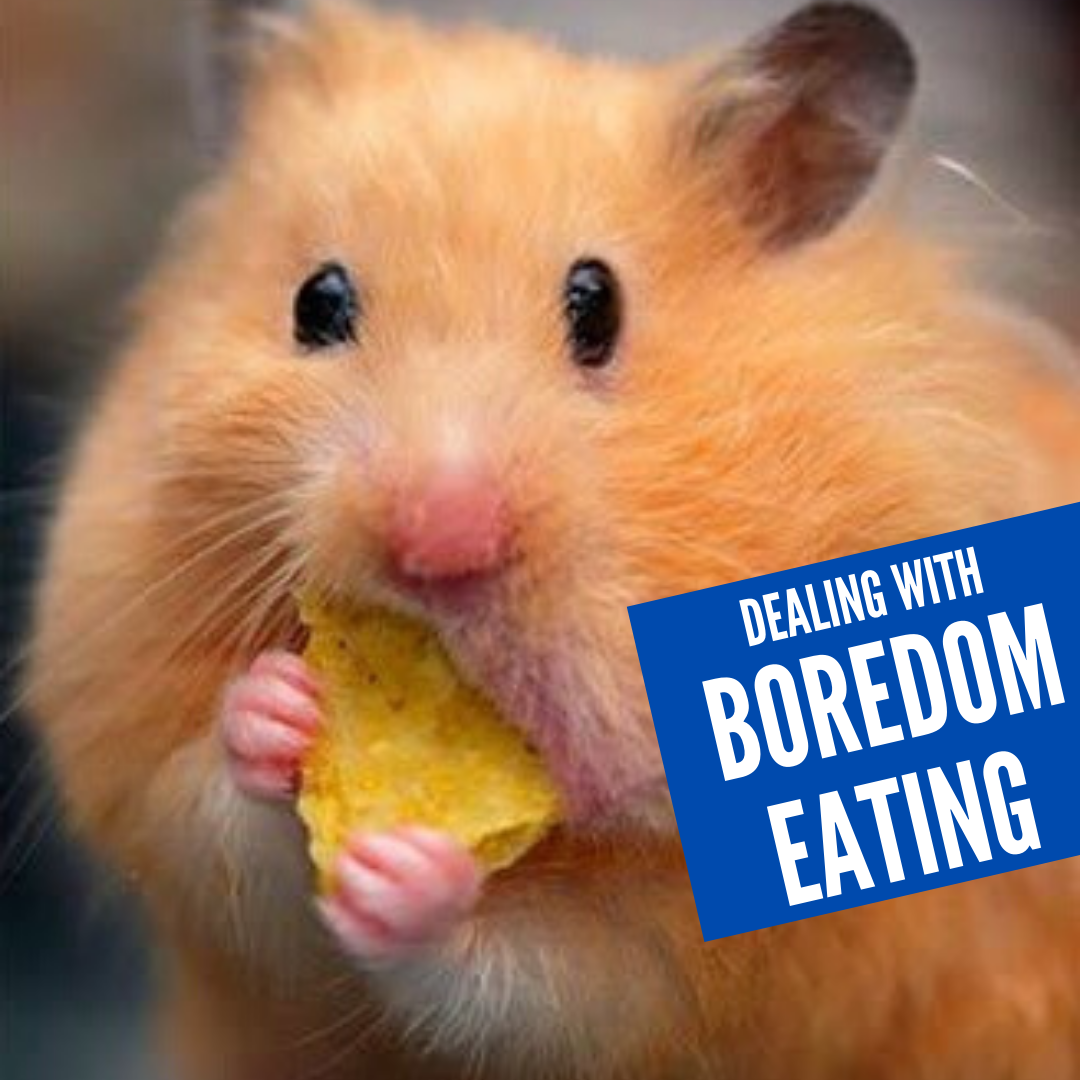

In this post, we will discuss boredom and emotional eating – why we eat to alleviate boredom, and how to deal with it.
Boredom is a discrete emotion associated with feelings of dissatisfaction, restlessness, lack of progress towards goals, and/or not feeling challenged. It is an emotional signal intended as a trigger to help us re-identify our sense of purpose. However, these emotional signals are indiscriminate and do not help us decide where we should be focusing our attention….so boredom can become a positive or negative.
In this light, the difference between success and failure is not avoiding boredom itself, but rather how we react to boredom. Boredom is often experienced when we have little control over our situation. At the onset of feelings associated with boredom, a common short-term reaction is to escape self-awareness by finding an empty distraction to disconnect from negative feelings and alleviate the discomfort.
The link between boredom and eating
The perfect example is boredom eating – the excitement and stimulation of certain foods helps to distract our attention from our bored selves! Based on a limited body of research, here are a few things we understand about the link between boredom and eating:
Boredom markedly increases food consumption for individuals of normal body weight as well as the obese.
Boredom promotes an increased desire to snack.
Boredom promotes preferences for less healthy foods.
Obesity is more prevalent among those who regularly experience boredom, compared with other negative emotions.
While eating (or binge-watching Netflix, endlessly checking social media, playing Candy Crush, etc.) will distract your attention and make you temporarily forget you are bored, they will not alleviate the underlying cause of boredom. To alleviate boredom, we must work to focus our attention on meaningful and productive activities. Don’t distract yourself from boredom – face it head on. Here are some examples purpose driven, task-oriented activities that will relieve boredom and reduce the risk of boredom eating:
Here are some examples purpose driven, task-oriented activities that will relieve boredom and reduce the risk of boredom eating:
– Prepare your meals as if it were any other day. (Although I am home, I am maintaining the habit of keeping my meals prepared and in separate containers in the fridge, even though presently I’m conducting more of my business virtually).
– Get in your workouts as usual. If you don’t have access to your usual routine, consider using the time to focus on development of a certain skill.
– Re-engage with a a neglected project or hobby.
– Tackle your “to-do” list around the house – reorganize you closet, take on a repair project, initiate spring cleaning.
– Write a handwritten letter to a distant relative or friend – it’s a lost art and the person receiving it will feel very special!
– Take an online course in a subject that has always interested you, or for personal/career development.
– Look for ways to support your community – grocery delivery to seniors, start a donation pool for those who have lost or may be at risk of losing their jobs to ensure they have enough food money week to week.
– Optimize your household costs – are you still getting the best deal on cable, insurance, etc.? Shop around and make sure your rates are competitive.
– Refresh your personal and family long-term vision and roadmap – are your 1, 5- and 10-year goals still the same?
– Work on your personal brand and update your CV. Some of you may be concerned about employment so it’s a great time for a re-fresh. Even if you are not seeking employment, it is always a good idea to maintain your resume. (as a business coach to executives across the tech, financial, and health space, I can help develop your personal brand and generate highly impactful resumes, email me to discuss.
If you feel that your attention is in a productive direction yet emotional food cravings are still high, distractive tactics include going for walks, chewing gum or brushing your teeth, consuming extra water (this is a good idea in any case as it relates to maintain your health), taking a nap, and spending a few minutes mindfully meditating.
Capitalize on this time by engaging in developmental pursuits and focus on meaningful tasks that bolster your sense of self-worth. Use your healthy habits to keep you grounded!
There is no better time than now to focus on your health and well being. Contact me to explore nutrition coaching.
Further Reading
Moynihan, A.B., can Tilburg, W.A.P., Eaten Up by Boredom: Consuming Food to Escape Awareness of the Bored Self, Front Psychol., 6, 369 (2015).
Bench, S.W., Lench, H.C., On the Function of Boredom, Behav Sci., 3, 459, (2013).
Abramson, E., Stinson, S.G., Boredom and Eating in Obese and Non-obese Individuals, Addict Behav., 2, 181 (1977).
Eastwood, J.D., Frischen, A.; Smilek, D., The Unengaged Mind: Defining Boredom in Terms of Attention, Perspect Psychol Sci., 7, 482 (2012).